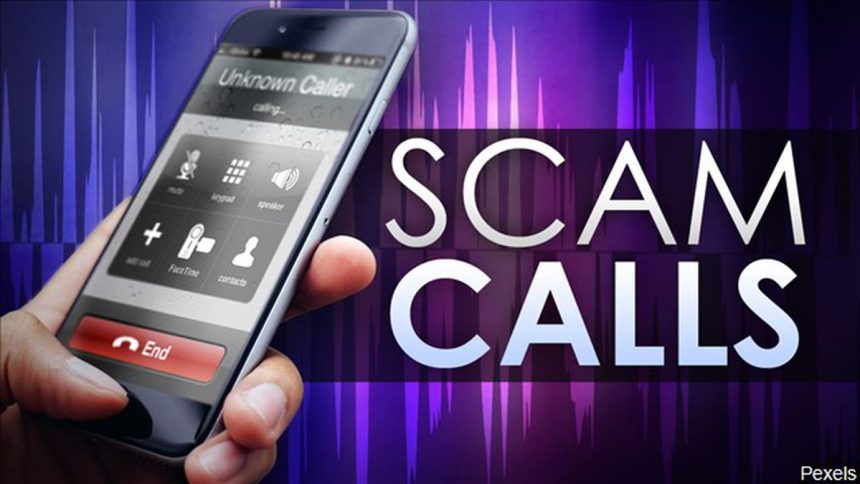We’ve all got a smartphone, right? Well, most of us anyway. Admittedly, some of us have rebelled against the smartphone revolution and have gone back to basics and prefer having a keypad to actually type on. This doesn’t rule those users out from the common phone scams, but smartphone users would be susceptible to more of them.
What’s constant about criminals like scammers and fraudsters is that they’re ever-evolving. If there’s one quality that’s admirable in a scammer, it’s that they really keep up with the times and adapt. Too bad that it doesn’t make up for their terrible intentions and wasting their talents by channeling them into illegal activities that affect the overall and financial well-being, as well as the dignity of good, hard working people like yourself.
As technology progresses, so do the techniques and methods of scheming scammers. These scams can range from putting you out of just a few dollars to having you hand over your entire life savings to someone who’ll just run off with it. You’re left confused, dazed, broken, and not sure where to go from there. Who do you speak to? Who do you report phone scams to?

With their evolving and seemingly boundless creativity, cybercriminals today use a plethora of methods to target victims. For example, some might create an entire fraudulent online marketplace, while others might call you up pretending to be a government official. It’s important to look out for scams tailored around a trending topic or current state that’s got everyone worked up. Scammers thrive on anxiety and this proves itself even now, as they’re taking advantage of the vaccine rollout amidst the pandemic.
Let’s keep it organized by grouping them up and looking at the most common phone scams so you know how to avoid them.
Text Scams
Text scams have been around since cell phones started to become a common sight everywhere (even since the days of wearing your cell phone pouch on your belt). Text scams don’t seem to be going anywhere anytime soon, either. While text scams occur over SMS, they also occur over other common and cheap messaging platforms, like WhatsApp, Signal, Telegram, as well as over the messaging portals of popular social media sites.
A common text scam looks like a friend has sent you a text, inviting you to have a quick chat or to give them a call. Once you respond to the text with the text in return or a call, you’re charged extortionate rates for each call – rates that rack up by the second! Scammers also like to make it appear that your bank is sending you a text notifying you that fraudulent activity has occurred on your account. They usually send you a website link to visit where you’ll input your bank account login details. Of course, you’re not sending these details over to the bank but to the fraudsters instead, unwittingly giving them complete access to your account.
To avoid falling for text scams, be aware of all the text messages you respond to. If a number is suggested to you in a text from someone you don’t know, don’t respond to it with a text reply nor with a call. It would be best to call up your bank or your network provider’s customer care to verify if they really sent you such a text.
Ransomware Scams
Ransomware sounds terrifying, and that’s because it is. The repercussions of ransomware can be devastating. Ransomware scammers prey on fear or desperation, sometimes a potent mixture of both. If scammers are able to make it through your firewall if you’ve got weak or no anti-malware or internet security, your phone might freeze up while you’re browsing. On your mobile browser, a message which looks both scary and official usually pops up on a banner. This would alert you that you’ve violated a law or two, and that the only way to make use of your phone again would be to pay a fine – or a ransom – into a specified account. Essentially, your phone will be held at ransom and will remain frozen until you pay the scammer the desired amount.
Be conscious and safe when downloading apps, making sure to only download them from your phone’s branded store. Apps that bypass the phone’s store (or Play Store) don’t get flagged for being unsafe, so the risk of ransomware is high. Also, don’t login to online banking or other accounts that deal with your personal info while using public WiFi. Public WiFi is a haven for hackers, due to its reduced security.
Cloning
If a cybercriminal gains access to your phone number and serial number, program another phone with your info. You get charged for any calls or texts they make, or data that they use.
It’s a tough one to be aware of, but keep your phone’s serial number to yourself to avoid these scams. If anyone asks for such information from you, make sure that they’re legit before disclosing such details. Even though cloning has increased, mobile phone companies are striving to make it more difficult for hackers to do this. You might also want to read about the advancement of cloning technology over the years.
One-ring Scams
You get a call from an unknown number but it only rings once. You call back to find out who called and then get charged a connection fee of something like $19.95 along with per-minute charges.
If you get a call from an unknown number – don’t answer it, especially if it rings just once.
Subscriber Fraud
This overlaps considerably with identity theft. Someone gets a hold of your personal information and opens up a cell phone contract/account in your name, racking up a huge bill before you even know you’ve been scammed.
Keep your personal information safe to avoid your identity from being stolen. Make sure to keep your Social Security number away from prying eyes, and make a point of knowing where you keep any documents containing sensitive personal info.














